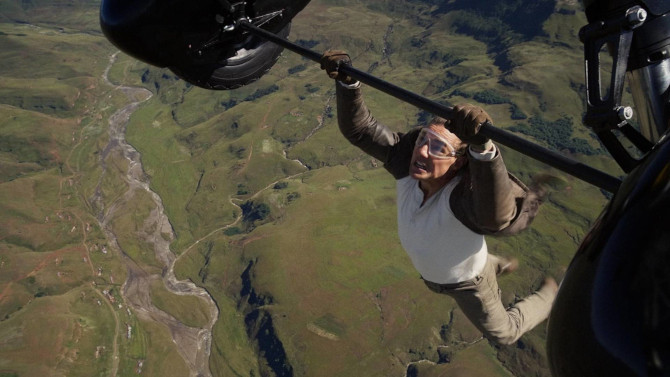
An Impossible Mission
How do you wrap up a franchise like Mission: Impossible? That is, if this even is the final installment... as they’ve made it sound (while at the same time, stars not named ‘Tom Cruise’ pipe up and suggest that might not be so). It has been twenty-nine years, with different writers and visionary directors – from twisty Brian De Palma and the action hair stylings of John Woo, to the lens flares of J.J. Abrams and animation expert Brad Bird, it was only about ten years ago that the franchise decided to opt for The Usual Suspects scribe Christopher McQuarrie for the final four. To return to that opening question once more, you could end with a Sopranos’ style cliffhanger, simply make another entertaining movie like the many before – like Everybody Loves Raymond did it with its final episode, or try to tie everything up in a neat little bow by bringing everything together as the Daniel Craig era did with James Bond. Well, it is definitely more along the lines of the latter example, with some distinct differences.
-
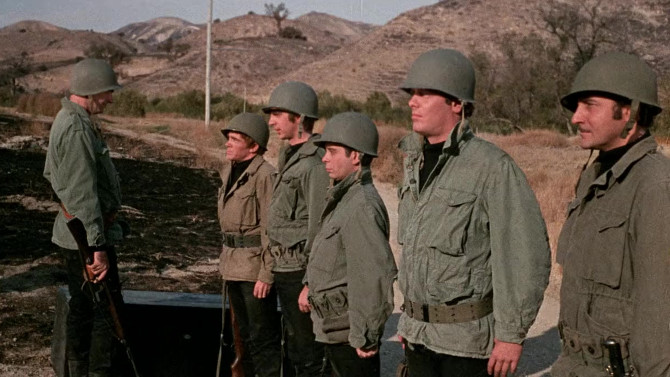
What Could Have Been: The Cut-Throats
February 21, 2021A film that can only be described as perfect weekend viewing for the great Quentin Tarantino, 1971's The Cut-Throats, written and directed by John Hayes, checks off all of the boxes. Featuring a bizarre western-infused introduction that has nothing to do with the rest of the flick (Django Unchained), a World War 2 set narrative (Inglourious Basterds), Nazisploitation (both Inglourious Basterds and Once Upon a Time. . . In Hollywood), a mostly confined setting (The Hateful Eight), a sword decapitation (the Kill Bill franchise), and quite a bit of foot fetish (the entire Quentin Tarantino filmography), hopefully you can really see what I’m talking about here.
-
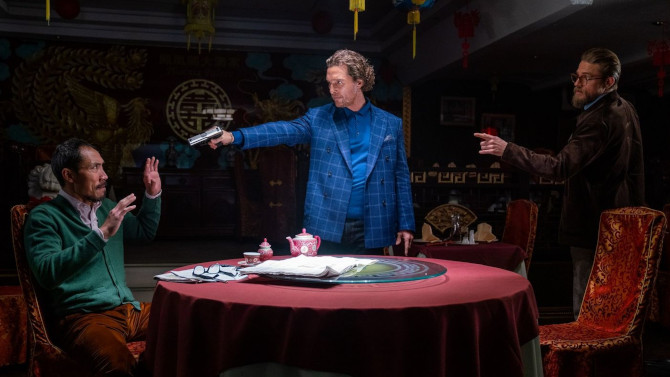
Ritchie Rich
The GentlemenFebruary 19, 2021A return to his roots after more than a decade making big budget studio pictures, Guy Ritchie’s The Gentlemen (2019), recaptures that unique mixture of crime and comedy (all done in a hyper-stylized visual way) that put him on the map back in 1998 with Lock, Stock and Two Smoking Barrels (the successful follow up Snatch would come in 2000). If you don’t like Ritchie’s visual style and Limey-centred crime stories, then this likely won’t win you over, but if you’ve missed his unique method of film making since his last gangster flick (2008's RocknRolla), this one should feel as comfortable as a finely made bespoke suit.
-

River Rafting
River of No ReturnFebruary 16, 2021Long before the wilderness of Alberta awed and amazed in Alejandro G. Iñárritu’s 2015 frontiersman epic The Revenant, it was widely featured in an impressive Technicolor CinemaScope picture, Otto Preminger’s 1954 western River of No Return. Shot in the beauty of Banff and Jasper National Parks (though some of the river scenes are shot at Salmon River in Idaho – where the actual story takes place), the scrumptious background is matched by the glorious foreground. . . which held two Hollywood greats – the chiseled features of Robert Mitchum and a woman whose looks need no descriptors, Marilyn Monroe (a rather intriguing historical note finds the actress causing a pile-up on the main street of Jasper while walking down the street in her tight-fitting jeans that she wears throughout most of the movie).
-
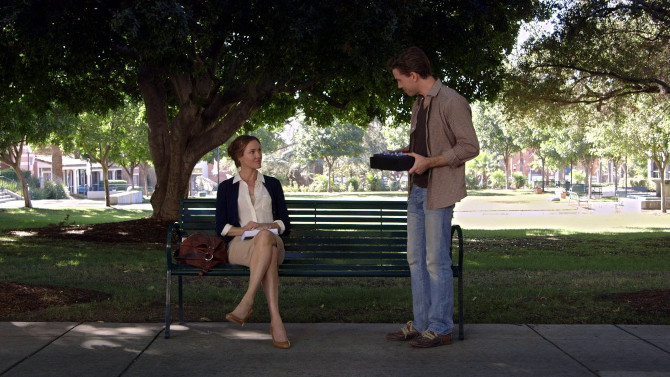
Just a Minute
One-Minute Time MachineFebruary 14, 2021Quirkily droll with a dark tinged twist, Devon Avery’s short film One-Minute Time Machine (2014), is an honest, sci-fi infused romantic comedy revolving around the difficulties of making that first emotional connection. . . setting in motion that much desired first date. Written by Sean Crouch (a scribe on television series like Numb3rs and The 100), he sets this unusual scene in the most simple and romantic of places. . . a bench backed by a sunlit, lush green park. Sitting there (minding her own business) is Regina (Erinn Hayes), a woman who immediately catches the eye of someone walking by, James (Brian Dietzen).
-
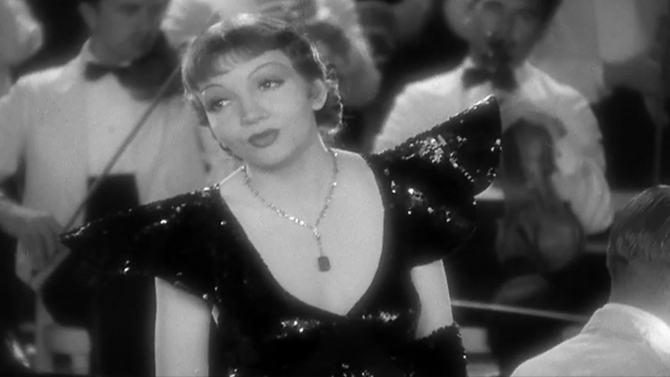
Carrying A Torch
Torch SingerFebruary 7, 2021A pre-Code movie that by today’s standards might not seem all that controversial, but would not have made it to theatres just one year later (when the Production Code started to be enforced), 1933's Torch Singer, directed by Alexander Hall and George Somnes, provides an intriguing snapshot of the time. Centred on a strong female performance (something less rare than you might expect for the 1930s) by Claudette Colbert, she plays Sally Trent, a young woman who quickly slept with her first love. . . only to find out she’s pregnant. Pause!
-

Rock Bottom Gold
The RundownJanuary 31, 2021Sometimes things look good on paper, then translate well to film, and still don’t work at the box office. I am still not quite sure how 2003's The Rundown failed to win over a massive audience (80.9 million made on an 85 million dollar budget). Developing an action frenemy comedy script that deftly mixes the two genres (by Xena: Warrior Princess writer R.J. Stewart), what followed was inspired casting. . . pairing the biggest wrestler of the time (and one of the most charismatic human beings on the planet – The Rock (a.k.a. Dwayne Johnson – who had only dabbled in Hollywood with The Mummy Returns/The Scorpion King), with Seann William Scott, who was just coming off of the success of the American Pie trilogy (as well as some other memorable roles at the time – Road Trip and Old School come to mind), the pair have instant chemistry. It should be no surprise that Vince McMahon is a producer on the project.
